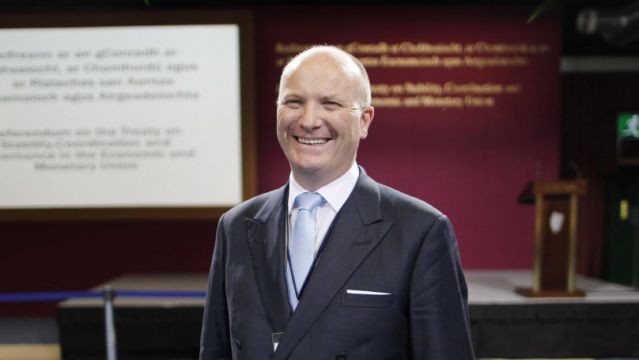Businessman Declan Ganley's High Court challenge to the legality of the ban on attending public religious worship which operated at stages during the Covid-19 emergency has been dismissed.
Mr Justice Charles Meenan was satisfied Mr Ganley's challenge was now moot, or pointless.
Mr Ganley had argued that although the disputed regulations have lapsed, the case raised important legal issues about the balance between the right to public worship and public health.
He argued the case was still about the “outright criminalisation” of the act of leaving one’s home to attend public Mass and while he was not arguing for an "absolute" right of public worship he maintained any such infringement must be justified.
His case was against the Minister for Health with Ireland and the Attorney General as notice parties. They disputed his claims.
Mr Justice Meenan said that, in broad terms, Mr Ganley maintained the restrictions are outside the powers of the empowering legislation: the Health Act, 1947 (as amended), and contrary to freedom to practice religion as guaranteed by the Constitution (Articles 15.2, 15.4, 44.1 and 44.2).
The judge noted the Minister and the State notice parties agreed not to raise the issue of “mootness”, notwithstanding that the impugned regulations had expired on December 1st 2020.
However, the judge directed, after the parties agreed to a telescoped hearing of the judicial review, that they address the issue of mootness as it was clearly now a central issue.
The effect of the level five regulations was that it was an offence for Mr Ganley to leave his residence for the purposes of attending Mass, the judge said.
The doctrine of mootness is subject to exceptions and Mr Ganley submitted that he fell into an exception identified by a number of legal authorities, he said. He also relied on Article 13 of the European Convention on Human Rights, which provides for a “right to an effective remedy”.
Mr Ganley argued that, as the Covid-19 pandemic is ongoing, the impugned regulations may well be re-imposed at a future time thus bringing himself within the exceptions identified within the authorities he cited for his case.
Circumstances of restrictions
The Minister and notice parties submitted that the lawfulness of the regulations cannot be determined definitively, or at an abstract level of principle, as the justification for the restrictions will always turn on the particular circumstances at the time they are introduced.
They also submitted that a hearing on the lawfulness of the regulations would not be an efficient use of court resources.
The judge said the constitutional rights of freedom of conscience and the free profession and practice of religion are not absolute.
It necessarily followed that any restrictions on such rights must be “proportionate”, he said
"What is or is not proportionate in the circumstances of a pandemic is going to depend on the extent and effects of the particular disease”, he said.
"Were the disease to have a high mortality rate (or high morbidity), significant restrictions may be more proportionate than would be the case of a disease with lesser effects," he said.
In this case, the legality, or otherwise, of any future regulations is going to depend on whether the restrictions imposed are proportionate to the danger being faced.
Finding that the now rescinded restrictions were disproportionate would be of little value in considering the legality of similar restrictions that could be introduced in the future to deal with a different threat, he said.
The provisions of Article 13 of the European Convention on Human Rights were not of assistance to Mr Ganley, he said.

In relation to the respondent/notice parties' argument on efficient use of judicial resources, the judge said he had to say he found this very difficult to accept.
While judicial resources have to be efficiently managed, he found it hard to accept, as claimed by the State side, that it would take a minimum of eight days of court hearings to justify regulations that were, apparently, made on short notice.
He was satisfied Mr Ganley's application was moot and should be dismissed.
As it was the case that the respondent and notice parties agreed with Mr Ganley not to raise the issue of mootness, he invited them to make submissions next month on the issue of costs.







